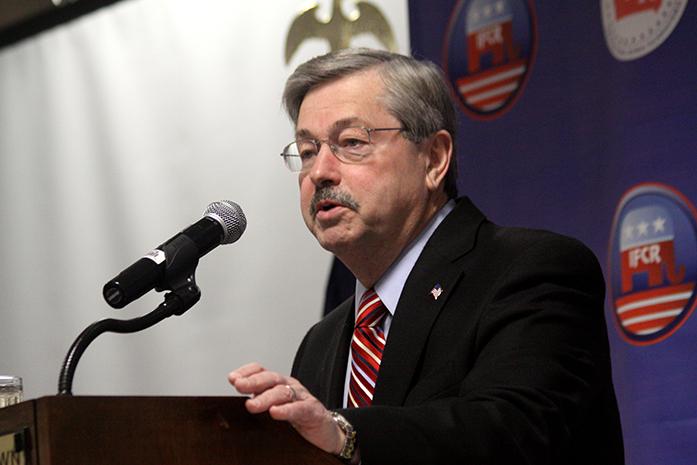Iowa may have an unique position with its first-in-the-nation caucuses, but the governor appears to try to stage an attempt at innovating the state in the national backdrop in a neo-traditionalist way.
At the turn of the year, Gov. Terry Branstad wants to implement a major sweep toward privatizing Medicaid. “Managed Care” is his new policy, which says it allows broader and more reliable mental and physical care through selecting and awarding contracts with health-care providers. The federal government on Thursday ordered Iowa to delay his plan for two months because the state is not ready to accommodate the switch.
Thirty-nine other states have some semblance of “Managed Care” but not to the extent of Iowa. Branstad announced the plan will save the state $51 million six months into the program, but that number is hotly contested.
From there, Iowans are forced to sign up with one of those companies. Of the four companies awarded, an Iowa administrative law judge deemed one company, WellCare, unfit for serving the state, given its dubious reputation.
The Republican is stirring up more controversy to top his hand-assembled state Board of Regents. Some of his selections switched political allegiance to independent in order to maintain the required equilibrium on the regents. Their UI presidential hiring has proven that trademark ignorance is his method to steer this campus — highlighted by his recently revealed affection for the playground turn-of-phrase “needs to be shot.” Hopefully, that will be the biggest gaffe Bruce Harreld makes.
However, Branstad’s brand-new health-care policy affects more than the transient student populace of Iowa City. It will thwart the reins of the arch nemesis “Obamacare.” Instead of cooperating with a federalized measure to ensure health care for U.S. citizens, Iowa’s governor will opt for a more laissez-faire approach.
Once the plan rolls out, an estimated 560,000 Iowans, most of whom are financially burdened, will be bullied into that company’s rates and plans. Another further structural deficiency is in how well-suited hospitals are adapted to this zealous free-enterprise; many of Iowa’s less affluent reside in more rural areas, where there are less adaptable hospitals.
But the problem of welfare exists at the top of the policy chain, not the bottom. The aforementioned WellCare is another less-than-reliable source; the company entered a debacle with the federal government following the fraud convictions of three former employees in 2014. WellCare failed to disclose “integrity agreements.”
Furthermore, the company had to pay $138 million in reparations in light of its greedy expenses inflicted on Medicaid and Medicare. All four companies have shifty backgrounds. The Des Moines Register reported that they faced combined 1,500 regulatory sanctions in the past five years, resulting in $10.2 million in fines paid.
To seal the deal, WellCare hired two Iowa lawyers to peddle Branstad into the contracting the company, despite their record. Our governor has already demonstrated misaligned priorities and mishandled budgets, from divesting in schools this year to selecting the regents to suspiciously hire the UI a businessman with a botched résumé. Apparently, the state needs seedy health-care providers to match that.



